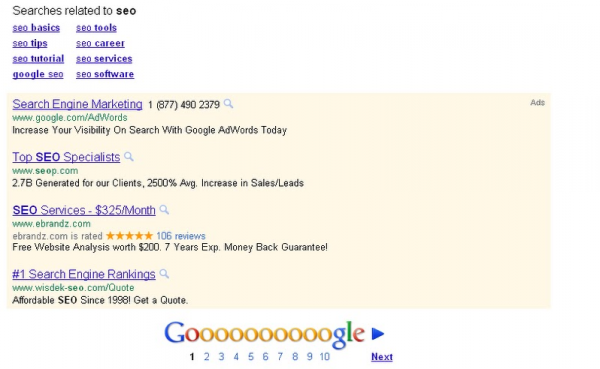In a follow-up comment to a post I wrote last week about social media web tools, Jared Hamilton asked me about other free tools I’d recommend for dealers and internet managers to be as effective as possible in their daily marketing efforts. Below are some tools that various team members at DealerOn use or have used in the past.
Compete.com –By entering your website and those of your competitors, you can see site traffic history, competitive analytics, and your “Compete Rank”, a stat based on unique visitors.
Quantcast.com — Similar information to Compete.com, Quantcast gives you another site to triangulate on information about your website, your visitors, and your competitors’ website visitors.
Spyfu.com – Not free, but they provide a free trial, and if you find it useful, it’s fairly cheap. Spyfu provides information about your competitors keywords (organic and paid), ad copy, and spend levels. The data isn’t perfect, but it’s interesting and helpful.
Website Grader–This is similar to Compete.com, providing information on various aspects of your site (metadata, readability level, indexed pages, linking domains, etc), and ways you can improve your website’s score.
Google Keyword Tool–This well-known tool allows you to see how many searches are done on a keyword, as well as related terms. It’s a good, basic way to help start your keyword research for your website. It also serves as a keyword discovery tool–providing additional keyword suggestions, that Google views as similar to the keywords you provide.
Google Webmaster Tools–Get the most out of your website by seeing how Google sees your site, get information about internal and external links, and make sure Google has your sitemap.
Google Analytics–I recently wrote a post about the importance of incorporating this analytics tool on your dealership site. There’s absolutely no good reason not to have it, its free, and even if you don’t check it but every few months, getting your site coded today, will mean that 2 months from now, you haveenough data to actually draw some conclusions about your site and your traffic.
Google Alerts–At a minimum, your dealership should be tracking when your employee’s names, dealership name, and competitors’ brand names are mentioned online. Results are delivered to your email inbox.
Backlink Checker–By simply entering your URL, you can find out how many backlinks Yahoo, Bing, and Google have to your site. You can click onto the results to see which sites are linking to your website. This is a useful stat to keep an eye on–if there is a sudden increase or decrease, you’ll want to find out why.
If you have any questions about how best to use these or other free web tools, feel free to contact DealerOn at clientresults@dealeron.com. Are there are any other free web tools that your dealership uses? Please share below.



